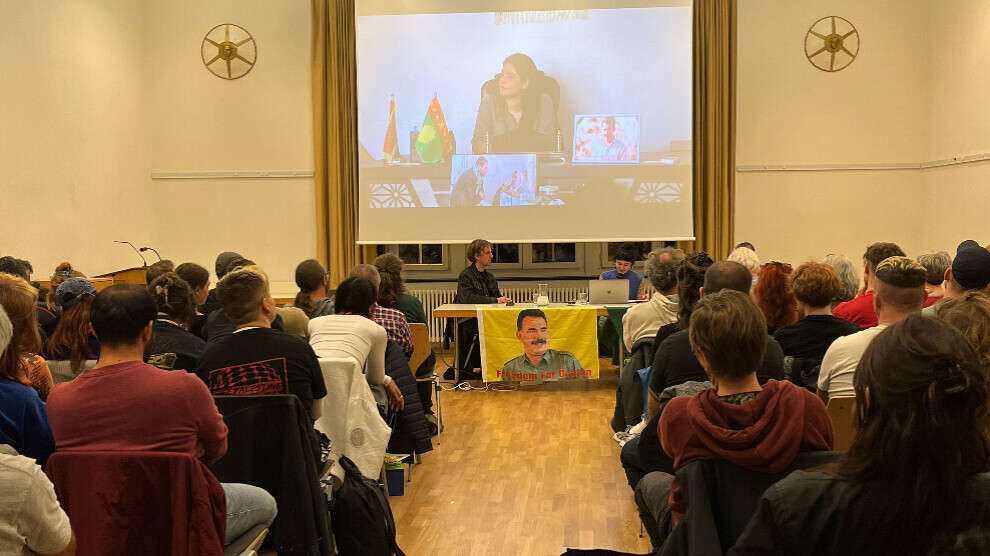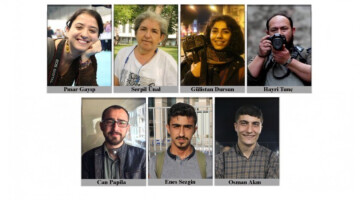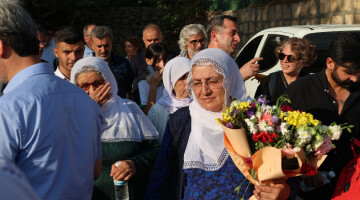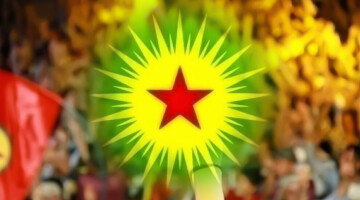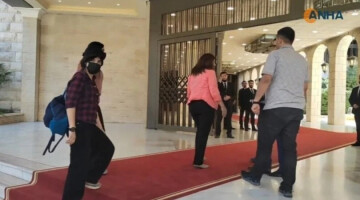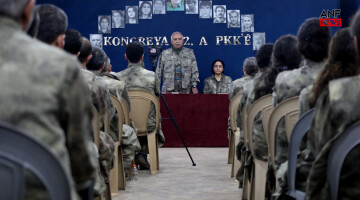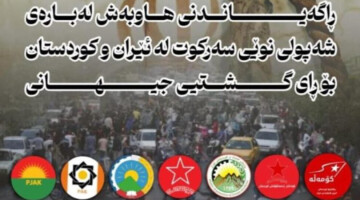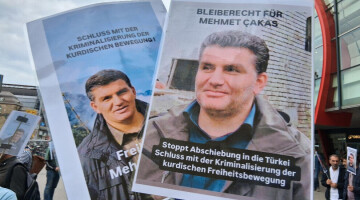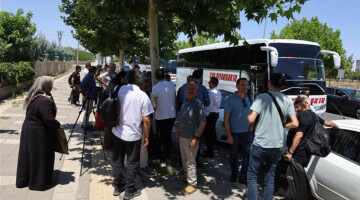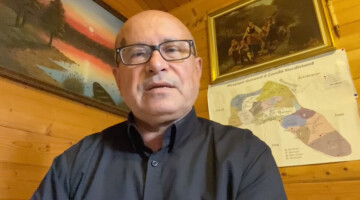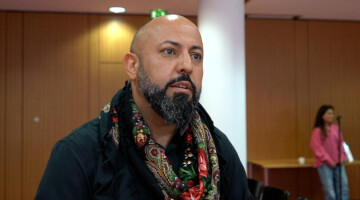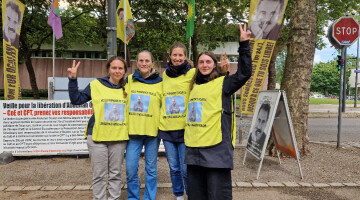An event was organised at the Volkhaus building in Zurich, Switzerland on the occasion of the first anniversary of the ‘Freedom for Abdullah Öcalan, a Political Solution to the Kurdish Question’ campaign that was launched globally by friends of the Kurdish people on 10 October 2023.
A group of human rights activists who visited Shengal and the Şehid (Martyr) Rüstem Refugee Camp in Maxmur participated in the event as speakers and shared their impressions.
Artist Mark Berger, one of the members of the delegation, expressed his observations on the form of self-government both in Shengal and Maxmur as follows: “Maxmur is a refugee camp in the middle of the desert where people who were forced to migrate due to the war in Northern Kurdistan live, and where daily life is a struggle. Life in Maxmur, where self-government and self-defence have been built, is organised according to the paradigm of democratic modernity developed by Abdullah Öcalan. In the camp where an average of 24 thousand people live, communes and the camp council work to meet all the needs of the residents. In the Maxmur camp, where every aspect of life is lived with a political consciousness, a new, libertarian culture is being built, which is the most important part of a revolutionary process against capitalist and reactionary cultures.”
Berger provided detailed information about the 74th genocide in Shengal, reflecting the photographs of the places where the painful events that took place during the genocide took place: “On the night of 3 August 2014, barbaric ISIS gangs attacked Shengal where Yazidis live. With the withdrawal of the KDP Peshmerga and the Iraqi army, Shengal was left defenceless against ISIS and the Yazidis were slaughtered by the barbaric ISIS gangs. 7 thousand young girls and thousands of young men were kidnapped by the gangs. With the arrival of 12 PKK guerrillas in Shengal and the subsequent arrival of YPG and YPJ forces, a corridor of life was created and the lives of tens of thousands of people were saved. After the re-liberation of Shengal together with the self-defence forces, the construction of a new life began.”
Pointing out that both self-defence units and social life in Shengal are shaped according to Abdullah Öcalan's paradigm, Berger said: “The Third World War is taking place in the Middle East today. Revolutionaries, socialists and human rights activists, wherever they are in the world, should not be in a position of watching this war. In Kurdistan, there is one of the movements waging the most progressive revolutionary struggle in the world. We think it is a political and moral responsibility to be on the side of the Kurdish Freedom Movement. The Kurdish Freedom Movement does not see its struggle only for Kurds or Kurdistan, it connects it with the entire history of humanity. Therefore, the stronger the revolutionary struggle in Kurdistan, the stronger the revolutionary struggles in the world will be. The stronger we struggle here, the stronger the revolution in Kurdistan will be. So, we believe that internationalist solidarity and struggle together is essential.”
Mark Berger stated that they closely observed the functioning of the local councils and assemblies in Shengal and showed the participants the photographs they had taken. Stating that they witnessed how radical democracy comes to life despite the difficult conditions, Berger finally answered the questions of the participants about both Maxmur and Shengal.

